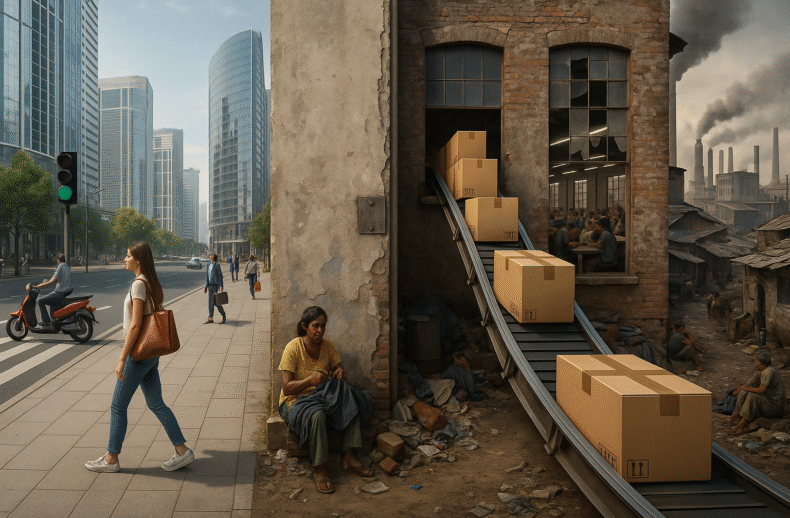Global trade presents itself as a neutral system—rewarding efficiency, fostering competition, and delivering the best products at the lowest prices. But this is an illusion. Beneath the rhetoric of free markets lies a structure of systemic concealment: companies do not seek productivity, but docility; not innovation, but exploitation. The shift from China to Vietnam in manufacturing exemplifies this logic—not as a pursuit of quality, but of cheaper labor and weaker resistance. What appears as economic progress is often a redirection of suffering—hidden behind supply chains, masked by price tags. Eidoism exposes this façade by demanding visibility of form over performance, and justice over growth.


